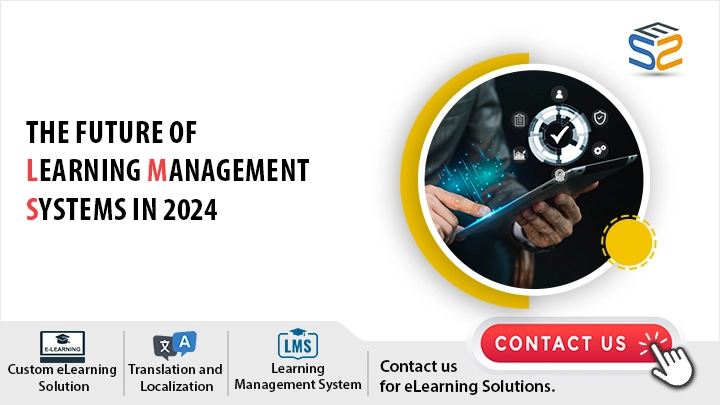The Future of Learning Management Systems in 2024
Learning Management Systems (LMS) have been pivotal in revolutionizing education and training, and as we look ahead to 2024, the landscape is poised for even more transformative changes. Here’s a glimpse into what the future holds for LMS, including the integration of cloud-based solutions and advanced learning technologies.
1. Personalized Cloud Learning Experiences
In 2024, cloud-based Learning Management Systems (LMS) will continue to lead the way in offering personalized learning experiences. These platforms leverage cloud technology to deliver content seamlessly across devices, allowing learners to access courses anytime and from anywhere. This flexibility is crucial for modern learners who require on-the-go access to educational resources.
2. AI-Powered LMS Platforms
Artificial Intelligence (AI) will drive significant advancements in LMS platforms. AI algorithms will enhance user experiences by offering personalized recommendations, automated assessments, and predictive analytics. These features not only streamline administrative tasks but also provide valuable insights into learner behaviors and performance, enabling educators to tailor their teaching strategies effectively.
3. Enhanced Security in Web-Based LMS
Security remains a top priority in web-based Learning Management Systems. As cyber threats evolve, LMS providers are implementing robust security measures to safeguard user data and ensure compliance with data protection regulations. In 2024, we can expect to see continued advancements in encryption technologies and secure authentication methods within LMS platforms.
4. Integration of E-Learning Technologies
The integration of e-learning technologies such as virtual reality (VR) and augmented reality (AR) will redefine how content is delivered and consumed within LMS. These immersive technologies enhance engagement by offering interactive and realistic learning environments. As the capabilities of VR and AR expand, so too will their integration into cloud-based LMS solutions, making complex subjects more accessible and engaging.
5. Social Learning and Collaboration
Collaborative learning features will play a pivotal role in the future of LMS. Platforms will integrate social learning tools such as discussion forums, group projects, and peer reviews to foster collaboration among learners. These interactive features not only enhance knowledge sharing but also create a sense of community within online learning environments.
6. Scalable LMS as a Service
The concept of LMS as a Service (LMSaaS) will gain traction in 2024, offering scalable solutions that cater to the diverse needs of educational institutions and businesses. Cloud-based LMSaaS providers will offer flexible pricing models and customizable features, allowing organizations to deploy and manage learning platforms efficiently without heavy upfront investments in infrastructure.
7. Data-Driven Decision Making
Data analytics will continue to drive decision-making processes within LMS. Advanced analytics tools will provide educators and administrators with actionable insights into learner performance, course effectiveness, and engagement levels. By leveraging these analytics, institutions can continuously improve their learning strategies and optimize the impact of their educational programs.
Conclusion
As we move into 2024, the evolution of Learning Management Systems towards cloud-based, AI-driven, and immersive learning experiences is set to redefine education and training. The integration of advanced technologies and the emphasis on personalized, secure, and collaborative learning environments will empower learners and educators alike. Embrace these innovations to stay ahead in the dynamic landscape of LMS and unlock new possibilities in education.
For more information on how cloud-based LMS solutions can transform your learning initiatives, explore BenchStep LMS and discover the future of learning management.




